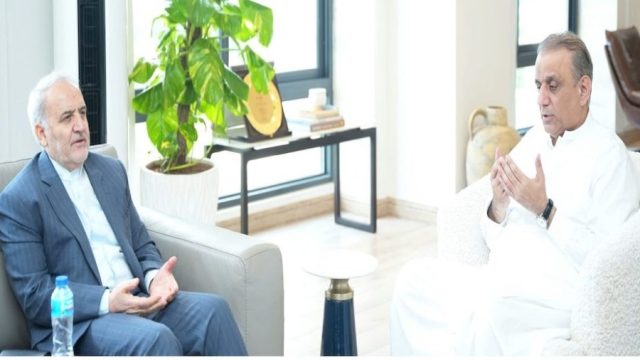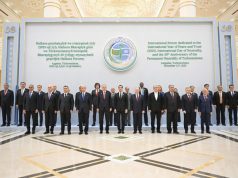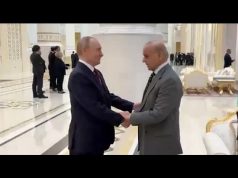ISLAMABAD, Thursday, July 10, 2025 (WNP): Iranian Ambassador to Pakistan Reza Amiri Moghaddam on Thursday called on Federal Minister for Communications Abdul Aleem Khan to discuss ways to strengthen bilateral cooperation and regional connectivity in a meeting that blended diplomacy with ideological solidarity.
During the meeting, Minister Khan congratulated Iran on what he described as its “significant success in the war against Israel,” calling it a source of pride for all Pakistanis. He underscored the deep-rooted religious and fraternal ties between the people of Pakistan and Iran, expressing confidence that the bond will continue to strengthen.
Both sides offered “Fateha” (prayers) for those who lost their lives in the conflict, paying tribute to what they termed the martyrs of the war.
Ambassador Moghaddam expressed deep gratitude for Pakistan’s steadfast support, especially from its government, people, and media. He characterized Iran’s military resilience and ideological fortitude as a divine blessing, noting that Tehran had stood firm against what he called the “Zionist mindset and aggression.” He hailed the outcome as one of the greatest blessings bestowed by Almighty Allah.
The two leaders agreed that the recent conflict had clearly delineated allies and adversaries, exposing the real face of countries like India and Israel to the international community. They collectively expressed thanks to Allah Almighty for the outcome and reaffirmed their reliance on divine mercy in navigating future challenges.
Looking ahead, Minister Khan assured the Iranian envoy of Pakistan’s full cooperation, particularly through the Ministry of Communications. He emphasized joint initiatives in transport and infrastructure development as a key area for expanding collaboration between the two neighboring countries.
The meeting reaffirmed the political and strategic alignment between Islamabad and Tehran amid shifting regional dynamics, with both sides vowing to deepen economic, ideological, and infrastructural partnerships.




